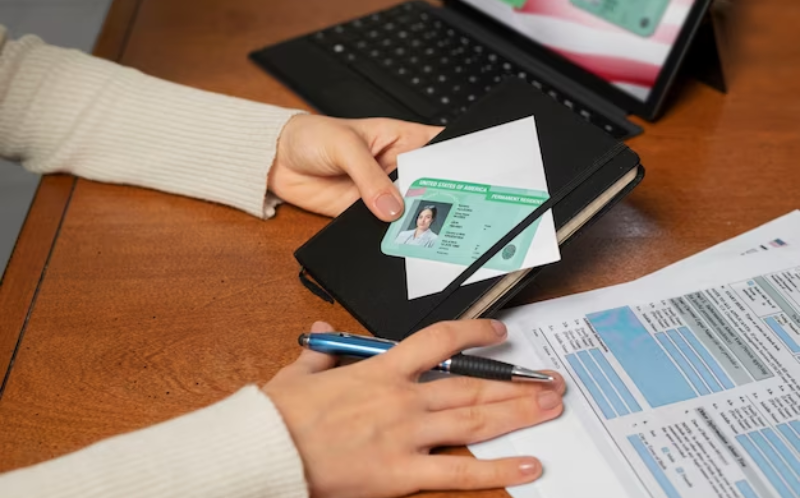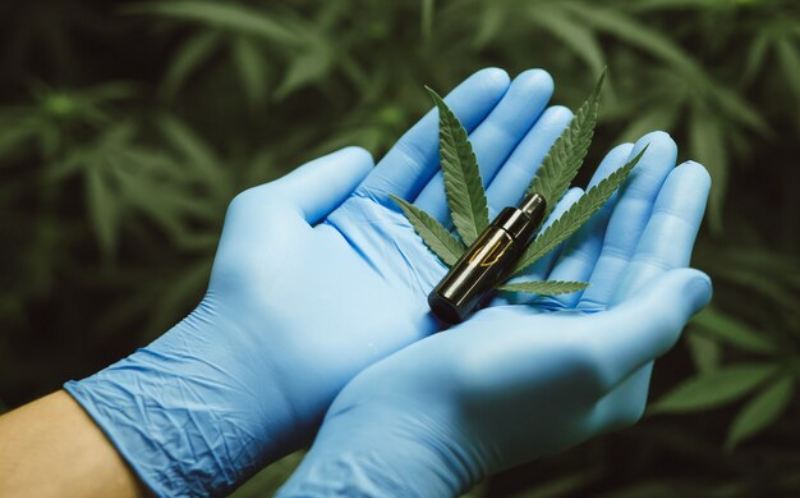In recent years, the state of Michigan has undergone significant legal transformations regarding the use of medical marijuana. It is paramount for residents and potential users to comprehend the complexities and stipulations of these laws to ensure they are operating within legal bounds.
Medical Marijuana has been legal since the enactment of the Michigan Medical Marijuana Act in 2008. This groundbreaking legislation opened the doors for numerous patients suffering from a variety of medical conditions to seek relief through the use of cannabis.

The Beginning: Michigan Medical Marihuana Act (MMMA)
In 2008, the citizens of Michigan voted in favor of the Michigan Medical Marihuana Act (MMMA), fundamentally altering the legal landscape for medical marijuana use in the state. The MMMA permits qualified patients and designated caregivers to possess, cultivate, and use limited amounts of marijuana for specific medical conditions and symptoms. It is crucial to note that the MMMA provides a legal defense for qualifying patients and caregivers, but it does not outright legalize marijuana use.

Qualifying Conditions For Medical Marijuana Use
Under the MMMA, a patient must possess a qualifying medical condition to be eligible for medical marijuana use. The following are the qualifying conditions:

- Alzheimer’s disease
- Amyotrophic Lateral Sclerosis
- Arthritis
- Autism
- Cachexia or wasting syndrome
- Cancer
- Cerebral palsy
- Colitis
- Chronic pain
- Crohn’s disease
- Glaucoma
- HIV or AIDS
- Inflammatory Bowel Disease
- Hepatitis C
- Nail patella
- Nausea
- Obsessive compulsive disorder (OCD)
- Parkinson’s
- Post-traumatic stress disorder (PTSD)
- Rheumatoid arthritis
- Seizures
- Severe and persistent muscle spasms
- Spinal cord injury
- Tourette’s syndrome
- Ulcerative colitis
- Alzheimer’s disease
- Amyotrophic Lateral Sclerosis
- Arthritis
- Autism
- Cachexia or wasting syndrome
- Cancer
- Cerebral palsy
- Colitis
- Chronic pain
- Crohn’s disease
- Glaucoma
- HIV or AIDS
- Inflammatory Bowel Disease
- Hepatitis C

- Nail patella
- Nausea
- Obsessive compulsive disorder (OCD)
- Parkinson’s
- Post-traumatic stress disorder (PTSD)
- Rheumatoid arthritis
- Seizures
- Severe and persistent muscle spasms
- Spinal cord injury
- Tourette’s syndrome
- Ulcerative colitis

Registration And Identification Cards
In Michigan, patients and caregivers must register with the Michigan Medical Marihuana Program (MMMP) to use medical marijuana legally and obtain a valid identification card. The MMMP is responsible for managing the registration process and issuing identification cards to qualifying individuals.
Greenlight Wellness Medical Marijuana Clinic offers a streamlined and convenient solution for obtaining a medical marijuana card online, providing same day certification approvals. The entire process is designed to be quick, secure, confidential, and in compliance with HIPAA standards, ensuring your personal medical information is protected.
To obtain your medical marijuana card through Greenlight Wellness, follow these three easy steps:
Following the consultation, your Michigan medical cannabis card will be swiftly sent to you via email, enabling you to legally use medical marijuana as soon as possible
Patient Possession Limits And Home Cultivation
Patients who are registered under the Michigan Medical Marijuana Program are allowed to possess up to two and one-half ounces of usable marijuana. In terms of cultivation, patients or their designated caregivers have the option to grow a maximum of 12 marijuana plants.
These plants must be kept in an enclosed, locked facility, or if grown outdoors, must not be visible to the unaided eye from adjacent properties, and must be secured within a specific type of structure as defined by the law.

Accessing Medical Marijuana: State-Licensed Dispensaries
Michigan’s commitment to ensuring safe and regulated access to medical marijuana is exemplified through its robust system of state-licensed dispensaries. These dispensaries play a crucial role in the Michigan Medical Marijuana Program, adhering to stringent quality control and safety standards to provide patients with a reliable source of medical marijuana.
In an effort to accommodate the diverse needs of qualifying patients, many dispensaries in Michigan offer home delivery services. This invaluable service is particularly beneficial for patients who may face challenges in physically accessing a dispensary, whether due to mobility issues, health concerns, or geographical constraints. With home delivery, patients can conveniently and securely receive their prescribed medical marijuana products directly at their doorstep, ensuring uninterrupted access to their medication.

Moreover, these state-licensed dispensaries are staffed with knowledgeable professionals who are well-equipped to guide patients through the selection process, helping them to identify the products that best suit their individual medical needs. This personalized assistance is instrumental in empowering patients to make informed decisions about their medical marijuana use.
For those seeking more information on dispensaries in Michigan, including locations, product offerings, and services, the provided link here serves as a valuable resource. By exploring this link, patients and caregivers can gain insights into the various dispensaries operating within the state, helping them to find the one that best aligns with their needs and preferences.
We encourage all qualifying patients and caregivers in Michigan to utilize this resource to enhance their understanding of the available options and to ensure they are making the most informed decisions regarding their medical marijuana use.
Michigan’s commitment to ensuring safe and regulated access to medical marijuana is exemplified through its robust system of state-licensed dispensaries. These dispensaries play a crucial role in the Michigan Medical Marijuana Program, adhering to stringent quality control and safety standards to provide patients with a reliable source of medical marijuana.
In an effort to accommodate the diverse needs of qualifying patients, many dispensaries in Michigan offer home delivery services. This invaluable service is particularly beneficial for patients who may face challenges in physically accessing a dispensary, whether due to mobility issues, health concerns, or geographical constraints. With home delivery, patients can conveniently and securely receive their prescribed medical marijuana products directly at their doorstep, ensuring uninterrupted access to their medication.
Moreover, these state-licensed dispensaries are staffed with knowledgeable professionals who are well-equipped to guide patients through the selection process, helping them to identify the products that best suit their individual medical needs. This personalized assistance is instrumental in empowering patients to make informed decisions about their medical marijuana use.
For those seeking more information on dispensaries in Michigan, including locations, product offerings, and services, the provided link here serves as a valuable resource. By exploring this link, patients and caregivers can gain insights into the various dispensaries operating within the state, helping them to find the one that best aligns with their needs and preferences.
We encourage all qualifying patients and caregivers in Michigan to utilize this resource to enhance their understanding of the available options and to ensure they are making the most informed decisions regarding their medical marijuana use.
Employment Protections And Reciprocity
It is important to note that the state of Michigan does not provide employment protections for medical marijuana patients. However, the state does practice reciprocity, recognizing medical marijuana cards from other states, districts, territories, or possessions of the U.S. that offer similar reciprocity.


Legal Protections For Qualifying Patients And Caregivers:
The law in Michigan allows for the designation of primary caregivers, individuals who assist qualified patients in the medical use of marijuana. Caregivers must be at least 21 years old and must not have any felony convictions related to illegal drugs. Additionally, they must not have any violent felony convictions. Each caregiver may assist no more than five qualifying patients.
- Possession: The MMMA ensures that registered patients and caregivers are legally protected when possessing medical marijuana, as long as they adhere to the specified possession limits.
- Cultivation: Registered individuals are allowed to cultivate a limited number of marijuana plants, granted they are kept in a secure and enclosed facility.
- Use: The legal use of medical marijuana is protected under the MMMA, provided it is done in private and does not violate any other stipulations set forth by the law.
Limitations and Boundaries:
- Possession Limits: The MMMA clearly defines the amount of medical marijuana a patient or caregiver can legally possess, and exceeding these limits can result in legal consequences.
- Cultivation Restrictions: There are specific rules regarding the cultivation of marijuana plants, including the number of plants allowed and the conditions under which they must be grown.
- No Public Use: The use of medical marijuana in public spaces is strictly prohibited and unprotected by the MMMA.
- School Grounds and Workplace Restrictions: The use, possession, or cultivation of medical marijuana on school grounds or in the workplace is not protected, even for registered patients and caregivers.
- Compliance with State Law: All activities related to medical marijuana must be in strict compliance with state laws and regulations to maintain legal protections.
By adhering to these detailed legal protections and limitations, qualifying patients and caregivers can ensure they are acting within the confines of the law, maintaining their rights and avoiding potential legal issues.

FAQ

No, the use of medical marijuana is restricted to private spaces, and its use in public places, on school grounds, or in the workplace is not protected under the MMMA.
You need to register with the Michigan Medical Marihuana Program (MMMP) and provide documentation of your qualifying medical condition from a registered physician.
Registered patients and caregivers are allowed to possess up to two and one-half ounces of usable marijuana.
Yes, patients or their designated caregivers can cultivate up to 12 marijuana plants, provided they are kept in an enclosed, locked facility, or meet specific outdoor cultivation requirements.
Yes, many state-licensed dispensaries in Michigan offer home delivery services, providing convenient access to medical marijuana for patients.
Michigan practices reciprocity and will recognize medical marijuana cards from other states that offer similar reciprocity, but it is crucial to verify this information before traveling.
Conclusion and Key Takeaways
Legal Framework:
Medical marijuana is legal in Michigan under the Michigan Medical Marihuana Act (MMMA), enacted in 2008. This act provides legal protections for qualifying patients and caregivers adhering to the state’s regulations.
Qualifying Conditions:
There are specific medical conditions listed under the MMMA that qualify a patient for medical marijuana use. It is vital to ensure eligibility before proceeding with the application process.
Read More about qualifying conditions
Registration And Identification:
To legally use medical marijuana, patients and caregivers must register with the Michigan Medical Marihuana Program (MMMP) and obtain a valid identification card.
Possession And Cultivation Limits:
The law sets clear guidelines on how much marijuana a patient can possess and how many plants can be cultivated. Compliance with these limits is essential.
State-Licensed Dispensaries:
Michigan has a system of state-licensed dispensaries, ensuring safe and regulated access to medical marijuana. Many dispensaries also offer home delivery services.
Legal Protections And Limitations:
While the MMMA provides significant legal protections for qualifying individuals, there are also clear boundaries and limitations in place, particularly regarding public use, school grounds, and employment.



